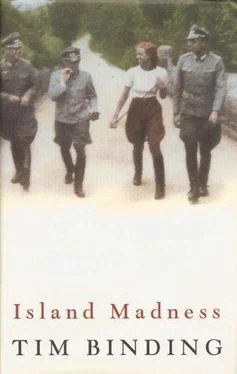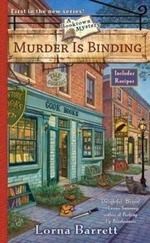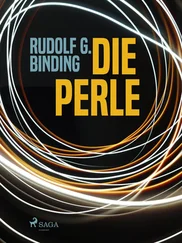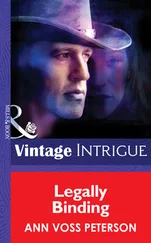“That’s kind of you, Gerhard, but I’d better not. You might not object but Zep probably would.”
“After tonight? I don’t think so.”
“But you can’t be sure, can you?” Lentsch opened his hands. “See? It’s not worth the risk.”
“Some cocoa then, before I retire?”
“That would be nice.”
He marched purposefully down to the kitchen, Albert’s domain. The light was bright and bare, everything washed and put away. He found the tin quickly enough, with a pencil mark on the outside marking the content level, but he couldn’t find any sugar. Hadn’t he asked Albert to get some? He couldn’t remember.
“You’re the cream in my coffee,” he sang out loud. “You’re the milk in my tea.”
Stirring the powdered chocolate into the milk made him dizzy. He walked back with exaggerated precision, banging into one of the Russell Flints before stumbling into the drawing room, holding the cups high in the air as if he were a steward keeping balance on a pitching yacht. Molly was putting away her lipstick and mirror.
“Piping hot and not a drop spilt,” he announced loudly, “though I nearly scalded the naked ladies on the way.”
Molly took the cup without batting an eyelid. She wasn’t going to make the same mistake twice. “I’m sorry?”
“The paintings in the hall! I nearly lost my balance and poured cocoa all over the walls.”
“Mrs H. wouldn’t like that.”
“No.” He swayed in front of her and took a tentative sip. “Good old Mrs H.”
Molly was beginning to reassert herself. “That’s right,” she said. “Good old Mrs H.” She stretched out her legs and admiring what she saw, wriggled her painted toes. “And here am I slouched in her best furniture.”
“You knew her well before?”
She laughed. “We moved in different circles, Gerhard, apart from the amateur dramatics.”
“Ah, yes, your plays and shows. Everyone seems to have taken part in them at one time or another, all except Albert, that is.”
“Well, there’s not a lot to do in a place like Guernsey. Dressing up on stage kept us out of mischief.”
“Really?”
“No, not really. Quite the reverse, in fact. In fact I think Mrs H. thought she had to be there to see we didn’t get carried away. The young flowers of Guernsey and all that. I bet she never imagined for one minute that one day I’d be a regular guest in her house, sleeping in one of her feather beds. Equality of the classes was never her strong point.”
Down the corridor they could hear laughter. Wedel was enjoying his unexpected time with the ill-mannered nurse from Bremen.
“Some people have all the luck,” Molly said and reaching down for her glass tipped the rest of her brandy into the hot drink. “You and me seem to have missed out tonight. Yours never turned up and mine ran out on me.”
“There are always other times.”
“You hope. Take it while you can, that’s my motto.” She stood up. “Go on, then, off to beddy-byes. I’ll make my myself useful down here.”
The Major lay on his bed, listening to her clearing up. He was surprised that the Captain had not yet returned. It must be important, to keep him from Molly, waiting so patiently to fill his bed. In a way he was pleased Isobel hadn’t turned up. There was no delicacy to these parties any more. The way everyone was carrying on, the house was becoming little better than a brothel. He should have known it would turn out like this. He remembered the time when, unknown to her father, Isobel had stayed overnight. Zep and he had come down to a late breakfast. The girls had already left. Albert had just brought in a plate of black pudding, made from the blood of rabbits.
“Well,” Zep had demanded, helping himself from Albert’s tray, “what’s she like, then?”
Lentsch had been shocked at his matter-of-fact boldness.
“Really, Zep. I don’t think…”
Zep laughed. “Don’t look so outraged, Gerhard. Haven’t you ever looked at Molly and asked yourself the same question? Of course you have.” He waved his fork in the air and leant across. “I’ll tell you what she’s like. Like a good watch; well oiled, superb moving parts and keeps perfect time. If I were a genereus man I would let you wear her for a while.” He looked at Lentsch, grinning. “But I’m not.”
What would have happened, Lentsch wondered, if he had taken Molly’s arm and hauled her up here without another word? Would she have resisted? Temporarily perhaps but not for long. And why not? Fear? Drunken lust? Or simply another consequence of ordinary war? And what would it have been like making love with her while listening for the sound of Zep’s car coming up the drive? It would be exciting, taking her like that, wouldn’t it? He touched himself. God, were they all mad?
He hung his uniform on the back of the door and walked across to the window and the dark rolling lawn beyond. He was about to draw the curtains when he saw lights sweeping up the headland. Not just one car but two, and a motorcycle as well. They bobbed and bounced in the night air then disappeared from view as the road bent inwards to the drive and the front of the house. Then he heard a car door slam shut and voices and Zep fumbling with his key. Lights came on, footsteps down the corridor. He expected them to march into the drawing room, where Molly was waiting, but they did not. They took the stairs two at a time with the Captain calling out his name.
Ned was woken by the sound of heavy pounding. For a moment he thought he was back in the section house with his Sergeant rattling his stick on their cast-iron beds and then he woke and saw his mother standing over him, shielding the candle flame with her bony hand. He could see the shape of her, lost underneath her flannel nightgown, and for the first time he realized how thin she had become. He rubbed his eyes.
“What’s up?” he asked.
“They’re at the door,” she said, and as if on cue the noise started up again, a hammering on one side of the front door and a barking on the other. Ned sat up and looked to the blacked-out window. Her shadow danced on the curtain to the rhythm of fluttering flame.
“Who could it be?” she asked, and trying to wish the answer into the world, added hopefully, “Russians?”
Ned shook his head. “Douse the flame,” he told her, “and let’s have a look at them.”
He slid out of bed and lifted up the black fabric and looked down. There were two of them. The Major’s car stood in the road behind them. It didn’t look good. He dropped the curtain.
“Germans,” he said. “Is the radio safe?”
“Up on the chimney ledge where it always is. Oh, Ned.” She clutched at him and began to shake. Ned stroked her hair.
“Don’t worry. They wouldn’t send Lentsch’s car just to arrest me,” he lied. The banging on the door continued, louder this time, and then, above the noise, came the call: his title and his name. A torch shone up at the window. He pushed his mother away gently.
“Go back to bed. It’s best if you keep out of it.”
He slipped into his trousers and pulled on a shirt. Downstairs was damp and cold, and the empty fireplace in the front room looked bare and vulnerable. Jimbo stood by the door, growling.
“Basket,” he ordered and the dog slunk off. Checking that the curtains were well drawn, he went to the table and lit the oil lamp. The electricity wouldn’t be on for another hour. A thick plume of acrid smoke rose to the black patch on the low ceiling. He adjusted the wiek. Light flickered on the walls. The banging resumed.
“ Moment! ” he called out. “ Moment! ”
He walked over to the fireplace and ducking his head down reached up. If someone had denounced them they would have told them where to look as well. Before he had been dragooned into the force his mother used to hold BBC parties once a week. Everyone would bring something, a plate of biscuits, a pot of jam, a rhubarb cake, and they would drink blackberry-leaf tea listening to their guest of honour, brought out from its hiding place and set down in the centre of the table on a folded linen napkin. He’d put a stop to them as soon as he’d been appointed.
Читать дальше












